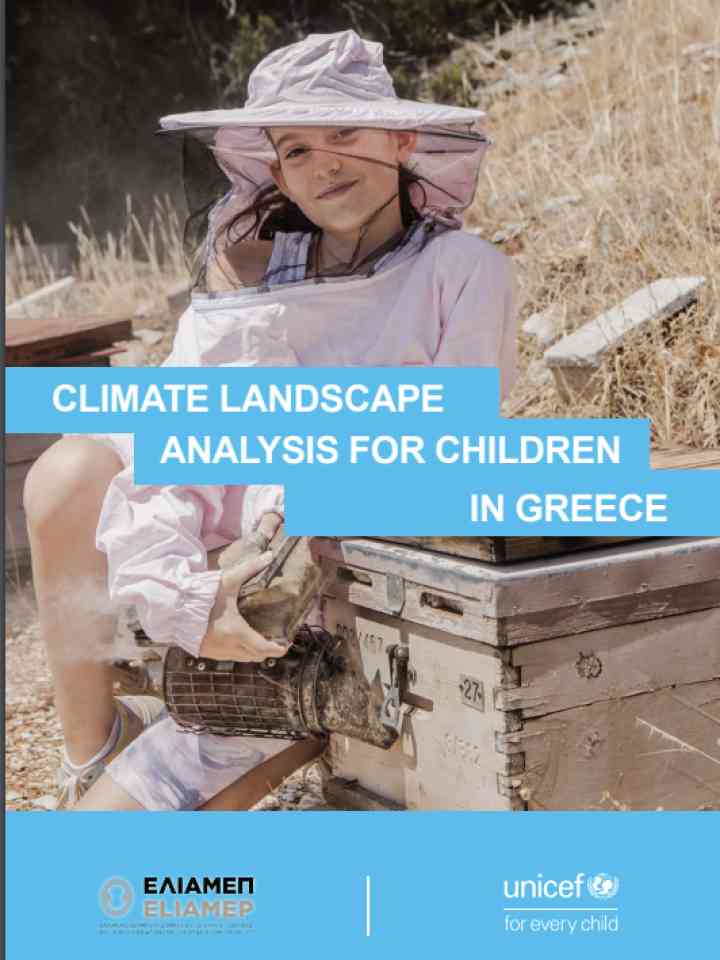Climate landscape analysis for children in Greece
The climate crisis is a child rights crisis. Children face distinct and heightened risks from the escalating impacts of climate change and increase in disasters. As disasters increase in number and severity around the world, children and young people in several countries but also in Greece bear the greatest burdens that can last a lifetime. They are often impacted first and most severely by crisis in their education, livelihoods, health and wellbeing. Girls, women, people with disabilities, displaced children, and families living under the poverty line are especially vulnerable. Disasters threaten all children's inherent rights guaranteed in the Convention on the Rights of the Child to life, survival, protection, development, participation and free expression. The present report provides an analysis of the state of climate in Greece; a review of the climate policy and regulatory framework assessing the extent of child sensitivity and inclusivity; a children's vulnerability mapping of the 13 Regions of Greece; and lastly how climate change affects children in Greece, mainly in the domain of education, overall service provision, mental health and well-being. The key outcomes have been shaped into a set of recommendations to competent Authorities and stakeholders that directly address the critical challenges faced by children in Greece in the aftermath of environmental disasters, exacerbated by climate change.
Key takeaways are as follow:
- Climate change poses severe risks to children, highlighting a need for child-centric adaptation policies. Existing climate policies lack specific measures for children, leaving them especially vulnerable in high-risk areas like Peloponnese, Thessaly, and Western Greece.
- Education systems are ill-prepared for climate events, disrupting learning. With 80% of teachers noting inadequate school facilities and 70% of students missing classes due to extreme weather, there’s an urgent need to improve climate resilience in schools.
- Climate change negatively impacts youth mental health. Increased anxiety among youth and reduced greenery indicate the need for mental health support and more green spaces to help young people cope with climate stress.
Explore further
